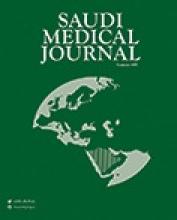Abstract
Non-alcoholic fatty liver disease (NAFLD) is a major national and international health burden. It is one of the most common liver diseases worldwide and the most common cause of abnormal liver enzymes in many developed countries. Non-alcoholic fatty liver disease is also known as an important cause of cryptogenic cirrhosis and second leading cause for liver transplantation. It is commonly associated with metabolic syndrome. Non-alcoholic steatohepatitis (NASH) is the progressive phenotype of NAFLD. In spite of promising performance of non-invasive tools, liver biopsy remains the gold standard test for NASH diagnosis. Over decades, many drugs have been investigated in phase 2 and 3; however, no approved therapy to date. Despite the alarming global rates of NAFLD, there are no local community-based studies on the prevalence of NAFLD or local practice guidelines on its management; this expert review aims to fill this gap.
Footnotes
Disclosure. Authors have no conflict of interests, and the work was not supported or funded by any drug company.
This position statement from the Saudi Association for the Study of Liver Diseases and Transplantation (SASLT) is issued to support the local medical community (primary care, family physicians, internists, gastroenterologists and other healthcare providers who handle fatty liver disease or its related metabolic risk factors) with concise, up-to-date information and practical guides on the management of fatty liver disease. There is a growing concern regarding the increasing rates of obesity and metabolic syndrome in the Saudi community as well as associated fatty liver disease, which has become the second leading cause of liver transplantation in the country with a lack of effective approved therapy and robust local data on the natural history of the disease.
- Received February 27, 2019.
- Accepted May 2, 2019.
- Copyright: © Saudi Medical Journal
This is an open-access article distributed under the terms of the Creative Commons Attribution-Noncommercial-Share Alike 3.0 Unported, which permits unrestricted use, distribution, and reproduction in any medium, provided the original work is properly cited.






